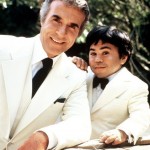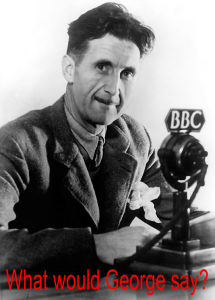 Some months ago, an Internet Form that I belonged to was taken offline after an internal dispute….and it never came back. The upshot of it was that the content of the forum was no longer available – gone for good. Of course, it wasn’t all pearls of ever-lasting wisdom, but there was some interesting stuff there that’s now gone forever. A week or so ago, another friend commented on my Facebook profile about the ephemeral nature of a lot of what we put online as ‘User Generated Content’, and it’s quality, and that got me thinking about just how much user generated content is worthy of any form of retention.
Some months ago, an Internet Form that I belonged to was taken offline after an internal dispute….and it never came back. The upshot of it was that the content of the forum was no longer available – gone for good. Of course, it wasn’t all pearls of ever-lasting wisdom, but there was some interesting stuff there that’s now gone forever. A week or so ago, another friend commented on my Facebook profile about the ephemeral nature of a lot of what we put online as ‘User Generated Content’, and it’s quality, and that got me thinking about just how much user generated content is worthy of any form of retention.
‘Web 2.0’ is very much about user generated content; a Web 2.0 site is essentially designed by the interaction that it offers users of the site – be it the ability to configure the user experience, participate in discussions, real time chat, post articles or images, whatever. For those of us from the 70s and 80s, it’s all very reminiscent of the paper based fanzines and newsletters we created, or the BBS systems of the 1980s and 990s – of course, the sheer volume and speed of communication offered by Web 2.0 exceeds the earlier versions of ‘user generated content’.
One might even include things like ‘Letters to the Editor’ in newspapers and magazines – how many of us knew someone who’d had a letter published in the local, or even national, press? And then you get in to the rarer scenario of having an article, poem or story accepted for publication – and getting paid for it. I still remember all the details of the first article that I had published in 1982 in the now defunct magazine ‘Electronics and Computing Monthly’.
The further you go back, the more important one thing becomes – and that’s editorial filtering. Basically, space was limited in magazines, and so you wanted to fill it with what would sell. And that’s where the quality control of the editor came in. Even with fanzines, there was a similar need – you had a limited amount of space dictated by the cost of copying, postage and the time taken to type and duplicate it all.
Today, many of these limitations are gone – cost of publication is minimal, distribution is done by the reader picking their copy up form your site, etc. Anyone can set up a publication in the form of a site, and expect to get a lot of content from users of the site. In theory, a perfect world of conversation between similarly minded people across the globe, with no editor getting in the way and dictating policy. It’s a wonderful dream. And it doesn’t work.
To be honest, most people are just not up to the job of writing for an audience; the editor didn’t introduce censorship – he or she bought along quality control, focus and direction for the publication. I’m far from perfect myself, but I learnt quite a bit about writing for an audience by having a couple of hundred article and a dozen or so books published in the days of the ‘paper press’. If we forget the obvious nonsense that turns up as comment on blogs – the spam, the ‘me too’ and ‘I agree’ posts – then much of what does end up online is often poorly phrased rant or loosely disguised ‘advertorial’. A lot of content on sites such as Facebook, Twitter and the online discussion forums is by it’s nature ephemeral – water cooler discussions enshrined in hard disc space – and the good stuff that you do find is typically drowned in the noise.
Like I said, I’m far from perfect and am conscious enough of my own abilities to know that my blog is simply the 2010 equivalent of a fanzine written by me and with a small audience. But it’s important that we don’t get fixated on the idea that the removal of editorial policy on the web and the resultant ‘free for all’ for people to provide content is necessarily good.
It isn’t. It’s removed quality control, and generated a Web that is increasingly full of rubbish. If you want quality – look for sites with editorial policy or moderation.

 I think my interest in what might be called ‘period piece detectives’ started many years ago, when I watched the big screen version of ‘Death on the Nile’ featuring the wonderful Peter Ustinov as Hercule Poirot. I stunned my wife (and myself) by actually solving the murder pretty early on. Since then, I’ve been rather a sucker for TV series such as Sherlock Holmes, Poirot, Miss Marple, Inspector Alleyn – those wonderful amateur sleuths (OK…Alleyn was a policeman but very much one of this crowd!) who seemed to outfox what Holmes would call ‘the official constabulary’ whilst inhabiting their particular period of history.
I think my interest in what might be called ‘period piece detectives’ started many years ago, when I watched the big screen version of ‘Death on the Nile’ featuring the wonderful Peter Ustinov as Hercule Poirot. I stunned my wife (and myself) by actually solving the murder pretty early on. Since then, I’ve been rather a sucker for TV series such as Sherlock Holmes, Poirot, Miss Marple, Inspector Alleyn – those wonderful amateur sleuths (OK…Alleyn was a policeman but very much one of this crowd!) who seemed to outfox what Holmes would call ‘the official constabulary’ whilst inhabiting their particular period of history.  During Google’s formative years, the company decided to come up withthe equivalent of a short mission / vision statement that summed up what it was to be Google. After some serious thinking, the slogan emerged. ‘Do No Evil’. Nice…although as someone pointed out – it really is just civilised good manners to do no evil. Why make such a fuss about it?
During Google’s formative years, the company decided to come up withthe equivalent of a short mission / vision statement that summed up what it was to be Google. After some serious thinking, the slogan emerged. ‘Do No Evil’. Nice…although as someone pointed out – it really is just civilised good manners to do no evil. Why make such a fuss about it? I have a client in Harrogate who I visit every couple of weeks, travelling by train. I went up there a couple of days ago, and as I’d had a particularly hectic couple of days before hand was able to reflect on something that I’ve thought about occasionally in the year that I’ve been visiting Harrogate. And that is that it’s really pleasantly slow compared to Sheffield.
I have a client in Harrogate who I visit every couple of weeks, travelling by train. I went up there a couple of days ago, and as I’d had a particularly hectic couple of days before hand was able to reflect on something that I’ve thought about occasionally in the year that I’ve been visiting Harrogate. And that is that it’s really pleasantly slow compared to Sheffield. No, nothing to do the 1970s TV series with Ricardo Montalban as a bloke who made wishes come true on an Island with a combination of technology, actors and smoke and mirrors. Although….. Nope, this is a review of a
No, nothing to do the 1970s TV series with Ricardo Montalban as a bloke who made wishes come true on an Island with a combination of technology, actors and smoke and mirrors. Although….. Nope, this is a review of a  Not very pleasant reading – although there is a chapter that offers a couple of alternative paths to take. Learning to be frugal is something we’re likely to have to get used to over the next few years, anyway, so that will be easy medicine to take – the vast majority of us have no real alternative. And one other thing after reading this book – it reinforces the old saw that Labour are not fit to govern – which is a dreadful thing for those of us who once had such hopes for the Left in the UK.
Not very pleasant reading – although there is a chapter that offers a couple of alternative paths to take. Learning to be frugal is something we’re likely to have to get used to over the next few years, anyway, so that will be easy medicine to take – the vast majority of us have no real alternative. And one other thing after reading this book – it reinforces the old saw that Labour are not fit to govern – which is a dreadful thing for those of us who once had such hopes for the Left in the UK. No, finding that book set off a set of thoughts and conversations with my wife that resulted in me looking at the Britain that we’ve ended up with in 2009 – and I guess by extension the rest of the world – and wondering ‘What would George say?’
No, finding that book set off a set of thoughts and conversations with my wife that resulted in me looking at the Britain that we’ve ended up with in 2009 – and I guess by extension the rest of the world – and wondering ‘What would George say?’